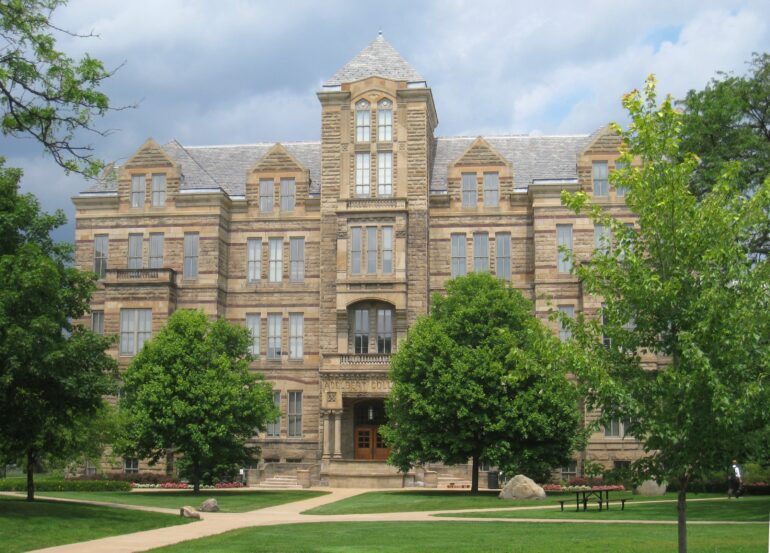TL;DR:
- Case Western Reserve University pioneers A.I. and machine learning collaboration.
- New GPU servers tailored for AI, emphasizing student understanding and optimization.
- $5.1 million NSF grant for AI and machine learning research in Ohio.
- Recruitment of AI experts, student training, and community college access.
- Anticipation of enhanced data utilization and job opportunities.
- Ethical considerations underscore responsible AI usage.
- AI experts conduct research, participate in events, and develop training materials.
- Focus areas include biomedical engineering, materials, and agricultural data science.
Main AI News:
In the rapidly evolving landscape of artificial intelligence and machine learning, Case Western Reserve University stands at the forefront with its groundbreaking collaboration. The university has unveiled state-of-the-art GPU servers exclusively designed for advanced AI applications. While platforms like ChatGPT have gained substantial traction, Dr. Gajurel, a distinguished figure in computer science, emphasizes the imperative for his students to grasp the intricacies of this burgeoning technology.
Dr. Gajurel highlights the essence of comprehending intricate code and wielding the capability to optimize and adapt it effectively. His aspiration is to empower students to harness the full potential of these GPU servers, thereby augmenting their code to achieve enhanced performance. “It’s not just about running code; it’s about understanding it, refining it, and unleashing its true power through GPU acceleration,” Dr. Gajurel asserts.
Bolstering this dynamic pursuit, the National Science Foundation has bestowed a substantial $5.1 million grant upon a triumvirate consisting of Case Western Reserve University, the Ohio Supercomputer Center, and the University of Cincinnati. This collaboration aims to catapult our region’s institutions into the vanguard of AI and machine learning research. The grant will fuel multifaceted efforts, including the recruitment of top-tier AI experts, equipping students with adeptness in cutting-edge technologies, and widening access to community colleges.
With a resolute vision, Dr. Gajurel anticipates that the advancement of technology will pave the way for optimized data utilization and usher in a new era of employment opportunities. “We are merely tapping into a fraction of the data at our disposal—around 80%. By leveraging AI capabilities and other similar tools, we can harness this dormant potential, thereby revolutionizing our approach to data utilization,” Dr. Gajurel envisions.
Dr. Gajurel’s anticipation of the AI revolution is rooted in years of anticipation, spanning nearly a decade. As this revolution becomes a reality, his enthusiasm is palpable for the unprecedented possibilities on the horizon. “Our ethical compass must guide us in this journey, ensuring responsible and judicious usage of AI,” Dr. Gajurel emphasizes, underlining the importance of ethical considerations in the face of technological leaps.
The influx of AI experts is poised to contribute significantly to diverse arenas. Their engagement will encompass pioneering research, active participation in conferences and workshops, and the creation of comprehensive training materials. Biomedical engineering, alongside materials and agricultural data science, emerges as a focal point in this ambitious pursuit of knowledge and innovation.
Conclusion:
Case Western Reserve University’s strategic partnership heralds an era of AI and machine learning advancement. Their commitment to educating students, fostering ethical practices, and exploring diverse research areas sets a precedent for innovation in the market. As these efforts unfold, the market can expect heightened integration of AI, ethically conscious technologies, and transformative solutions across industries.

